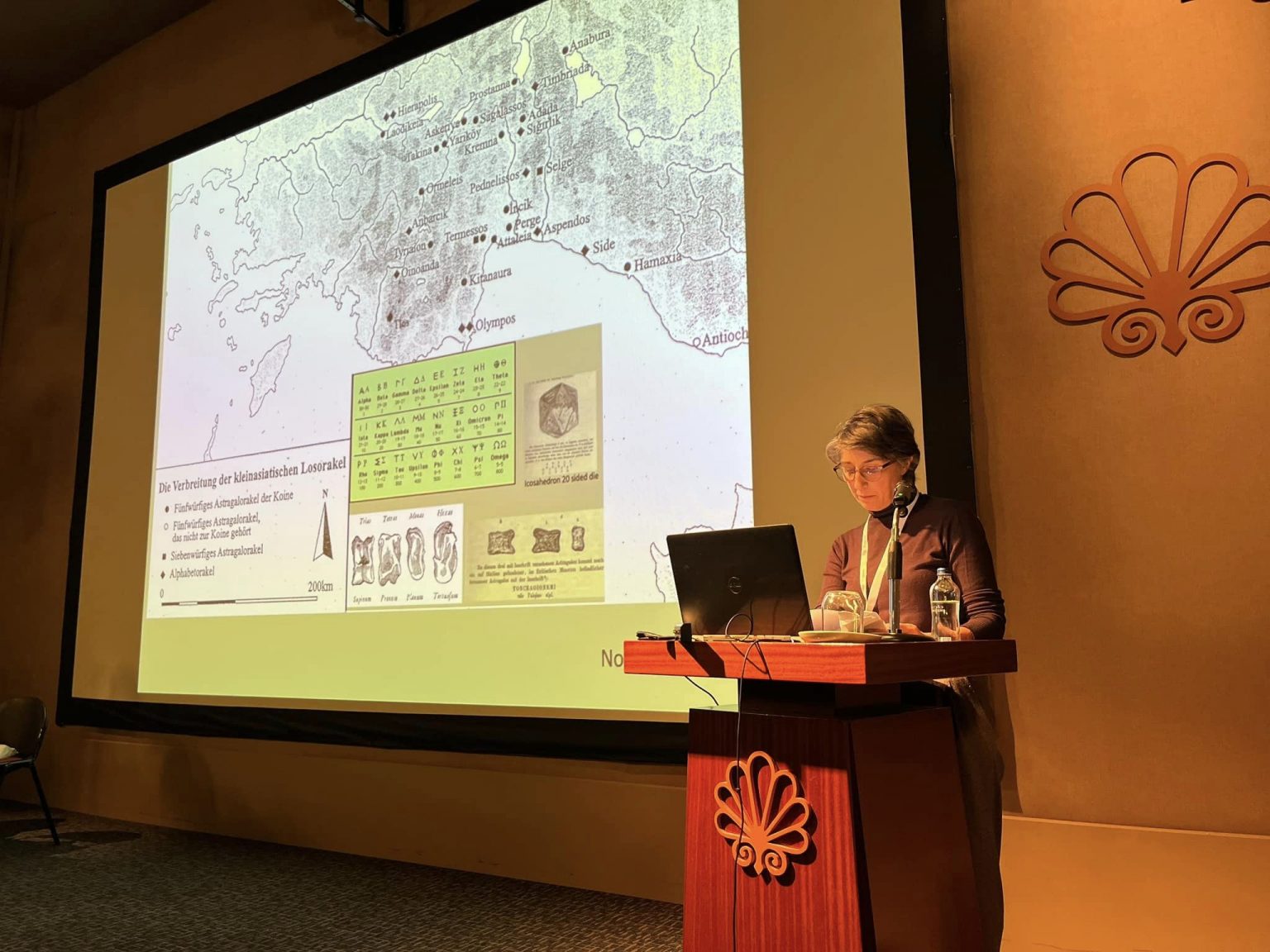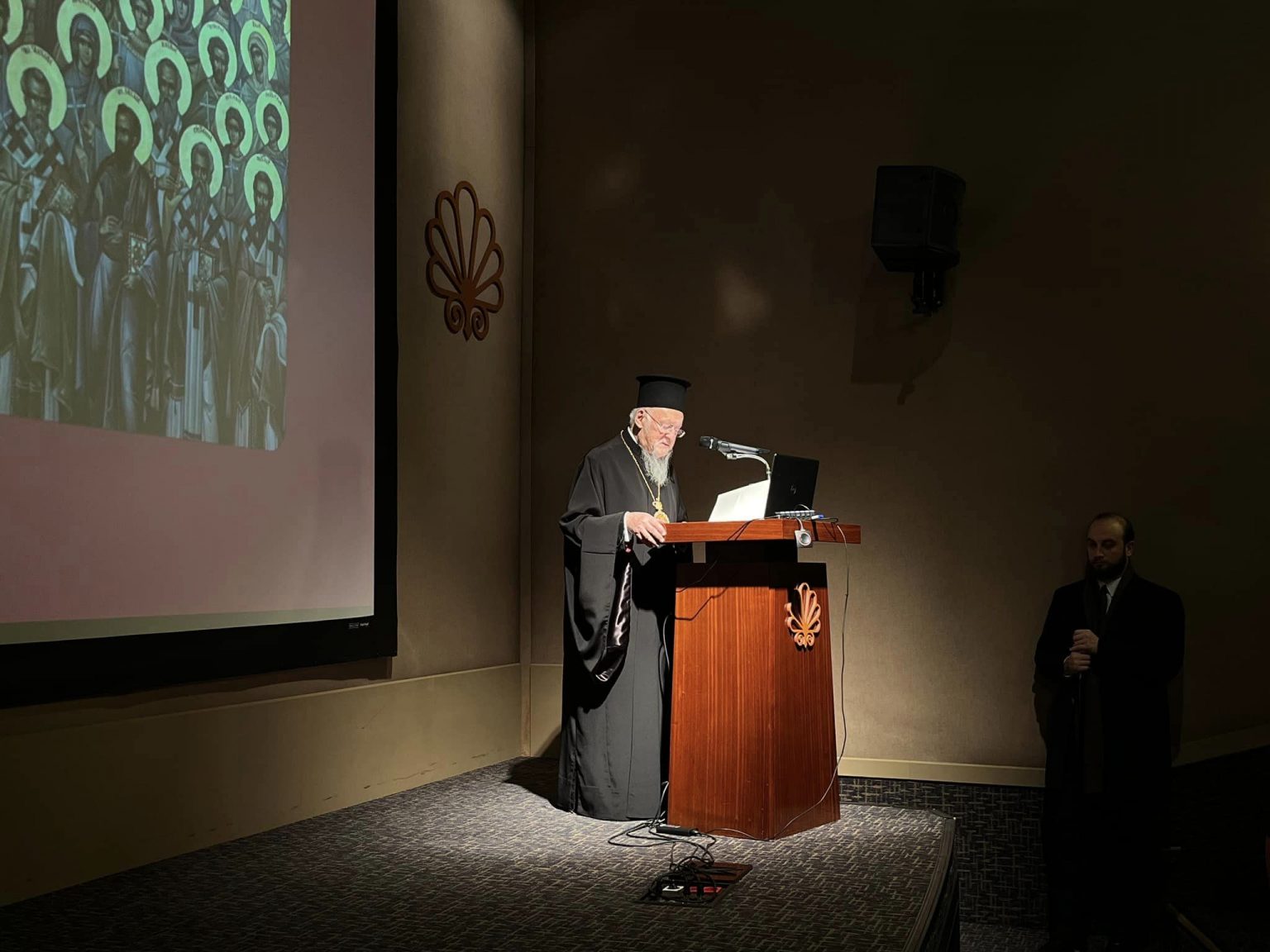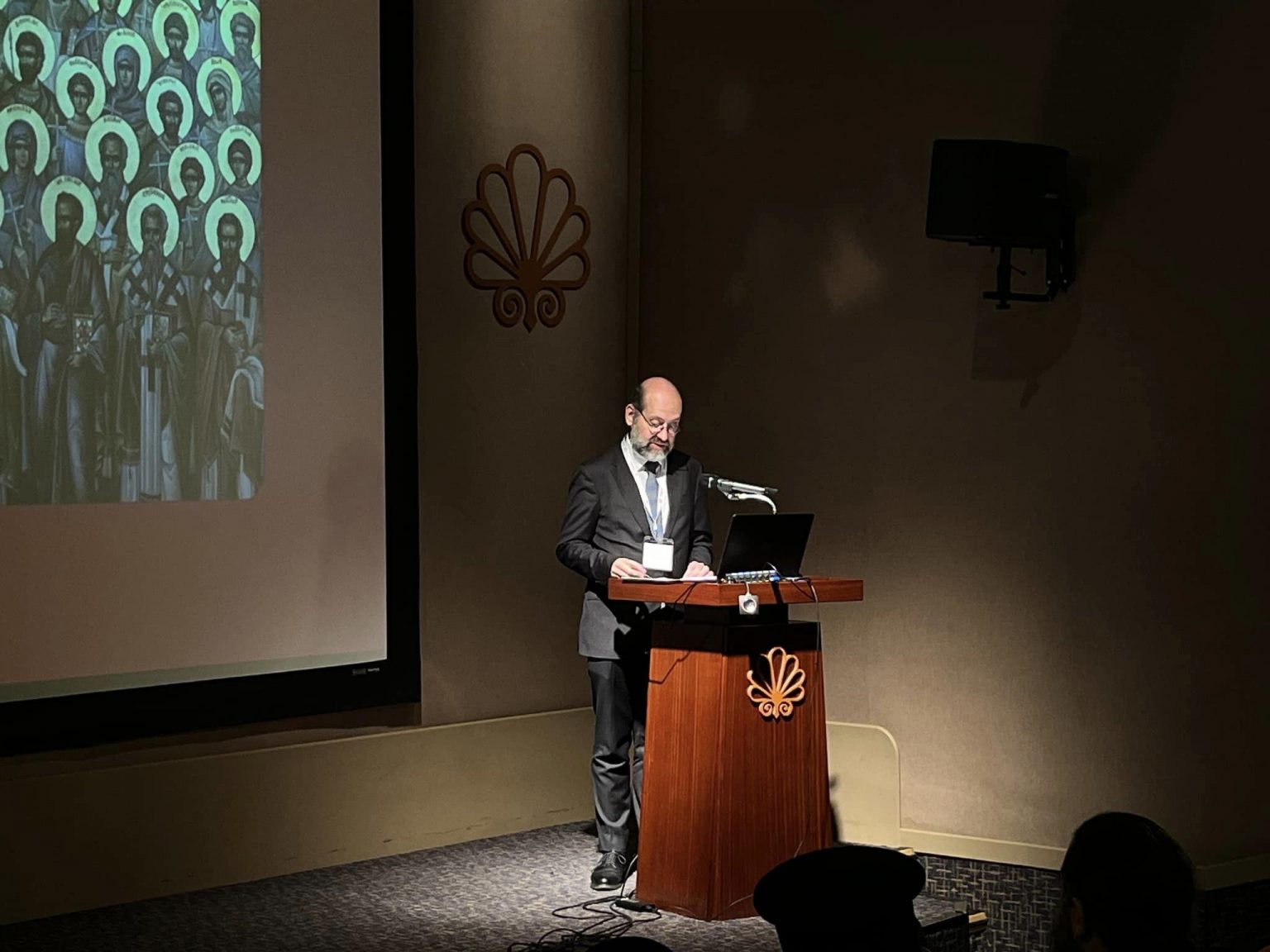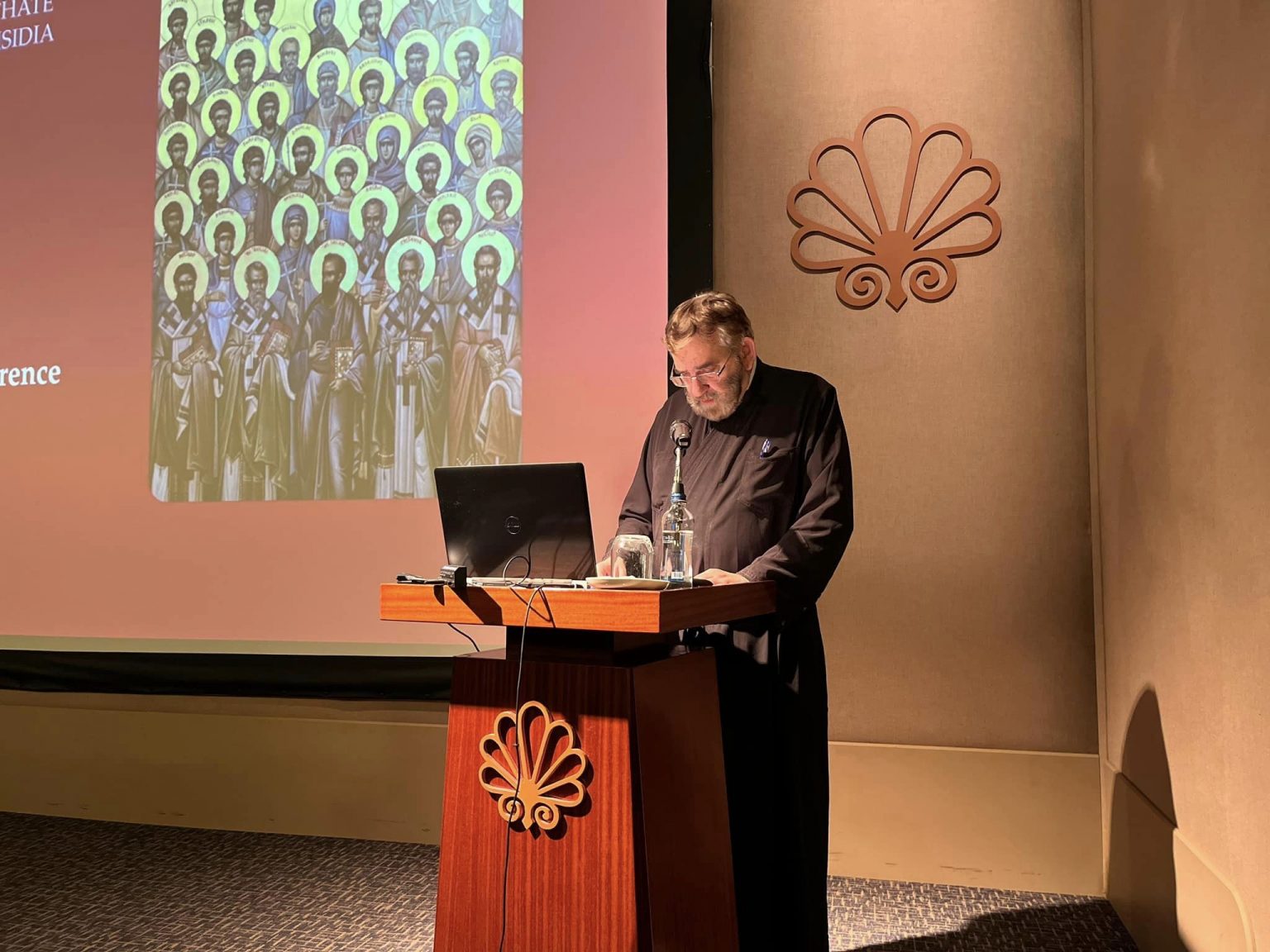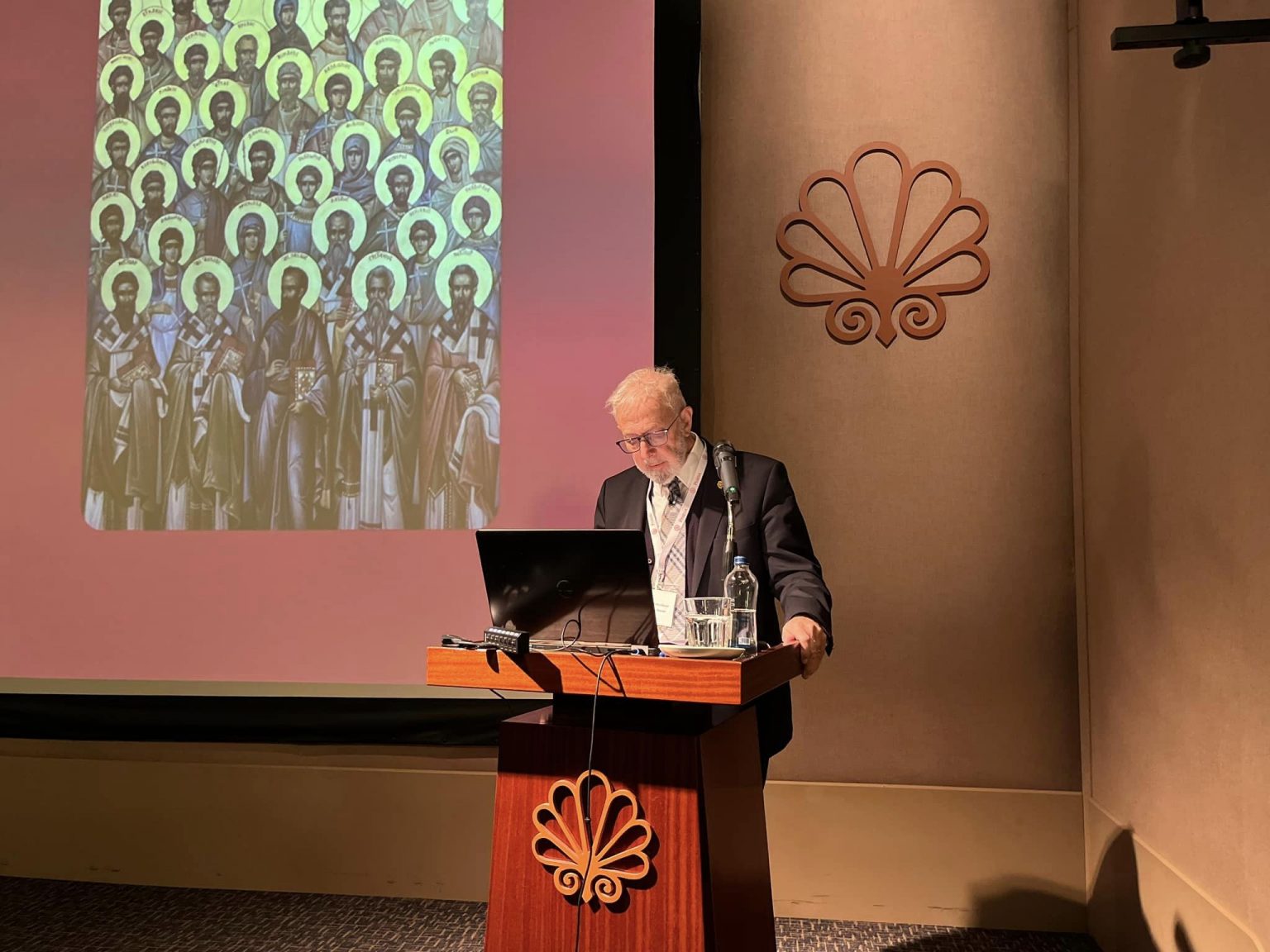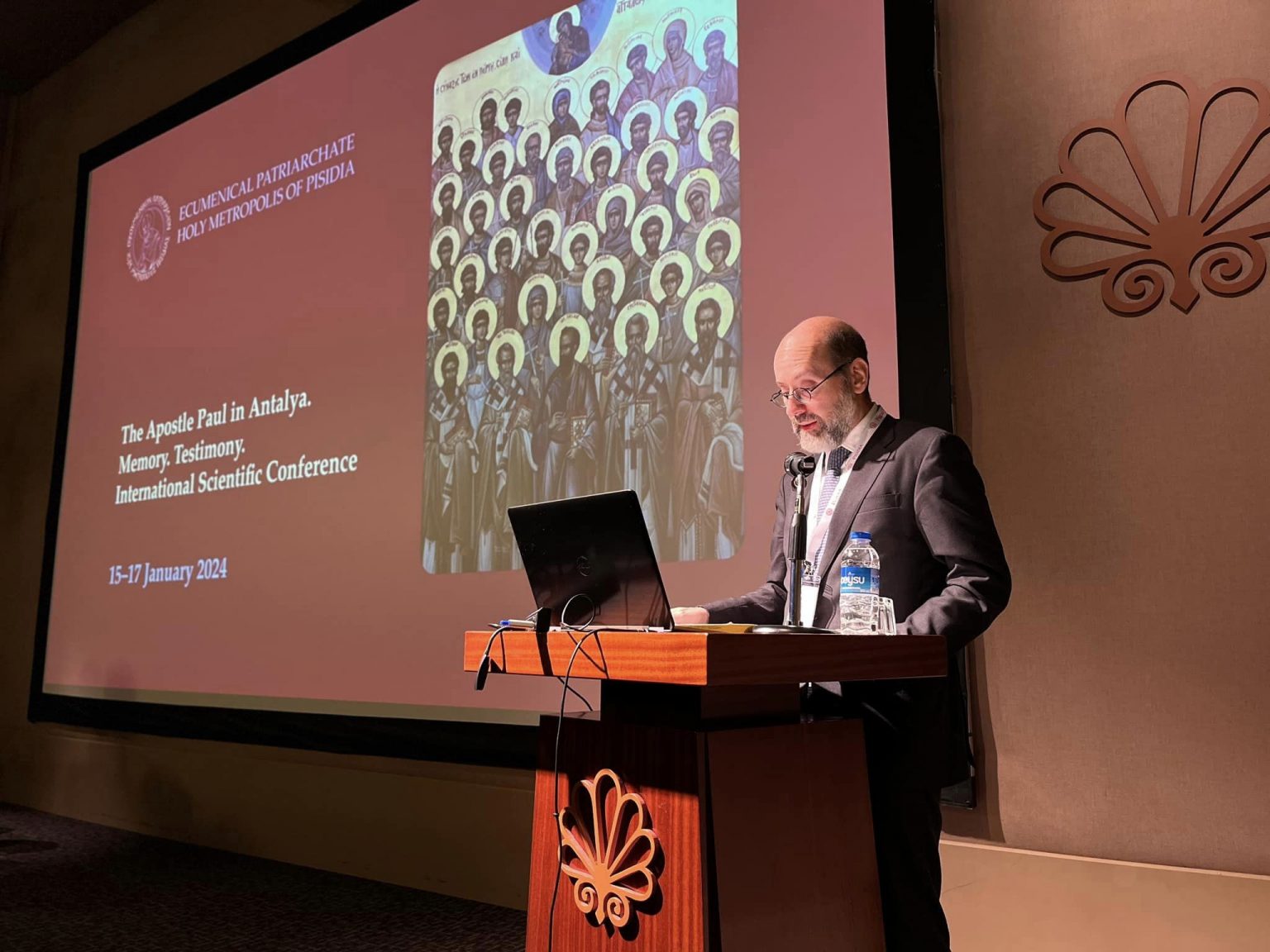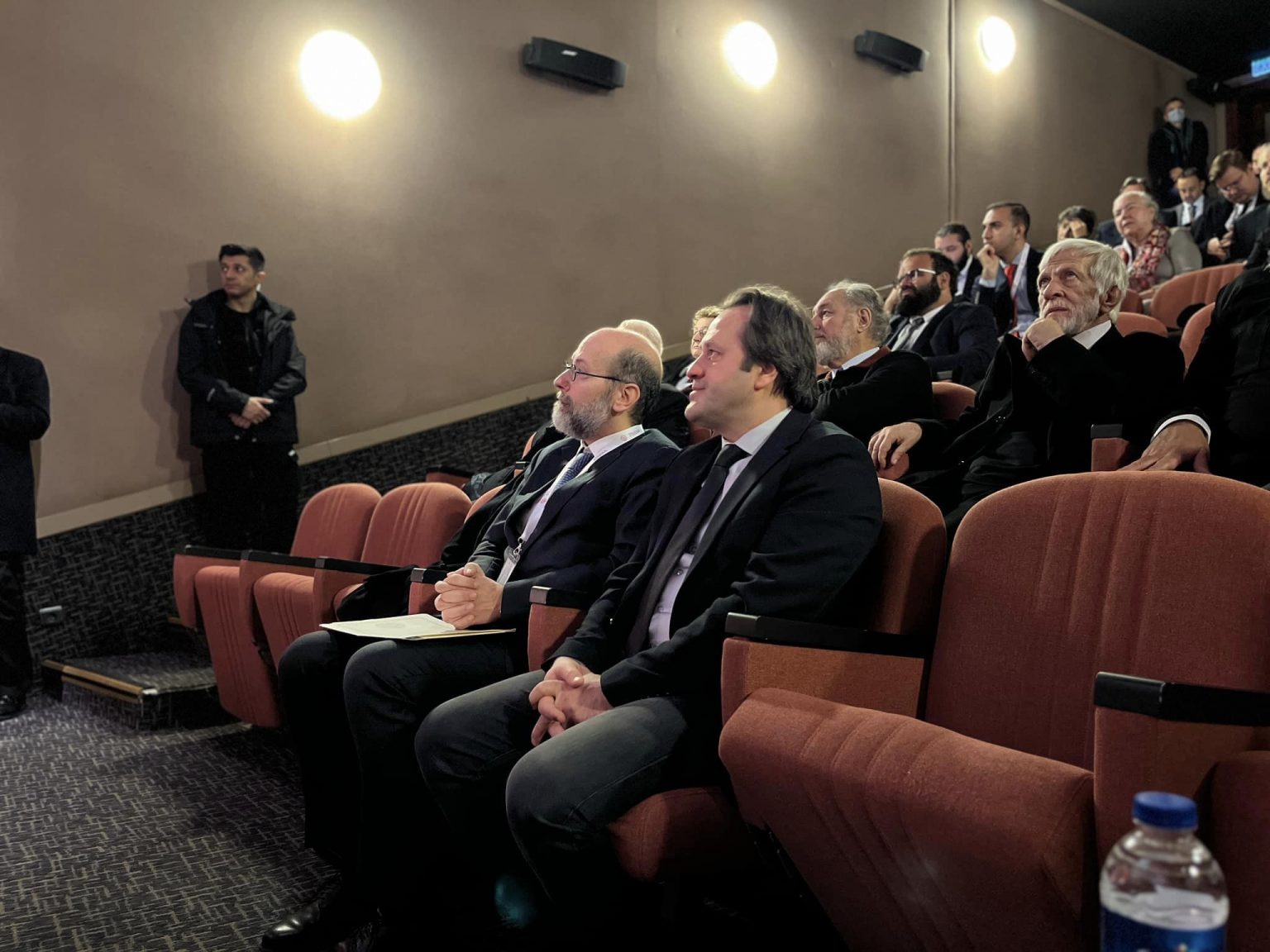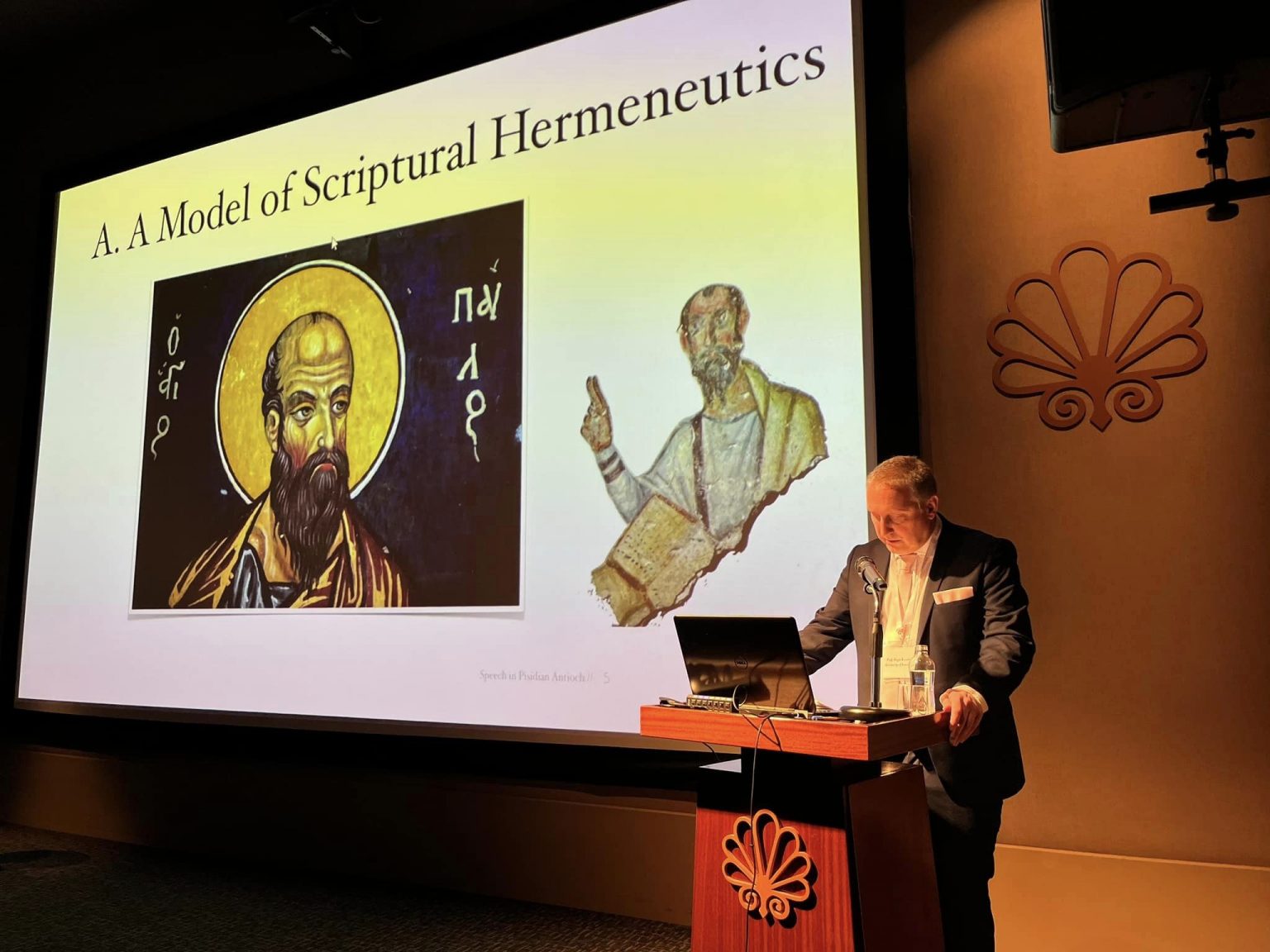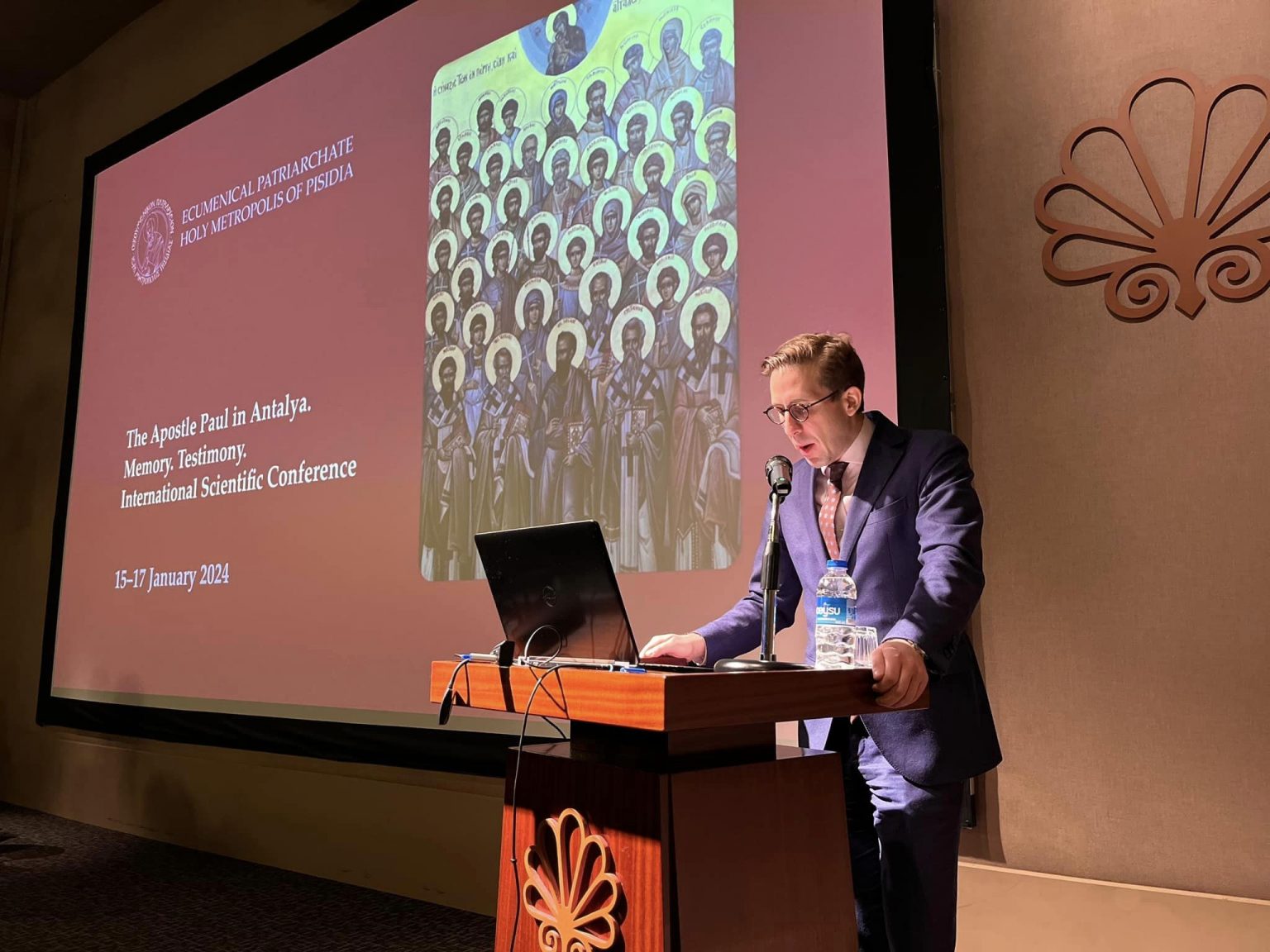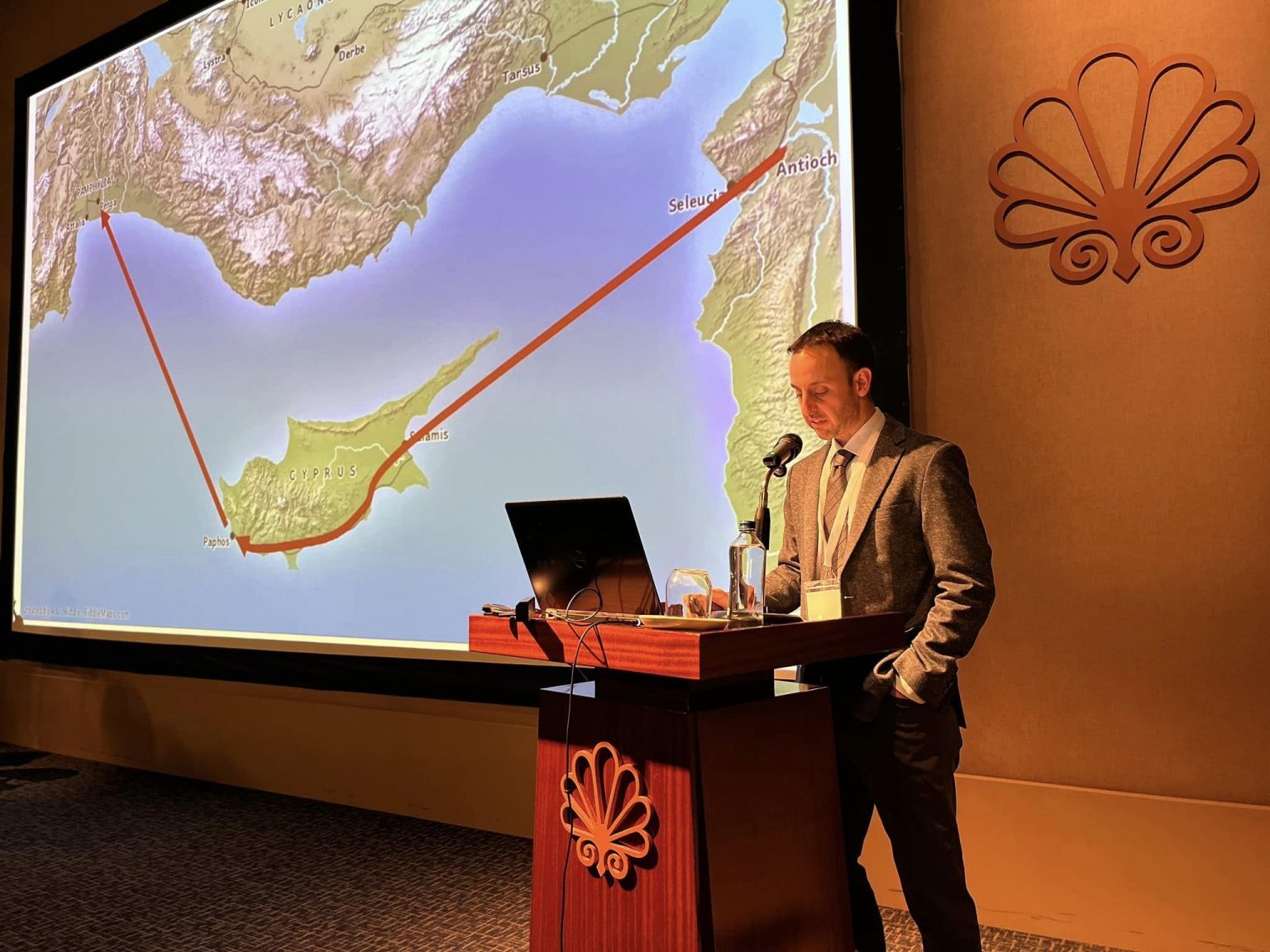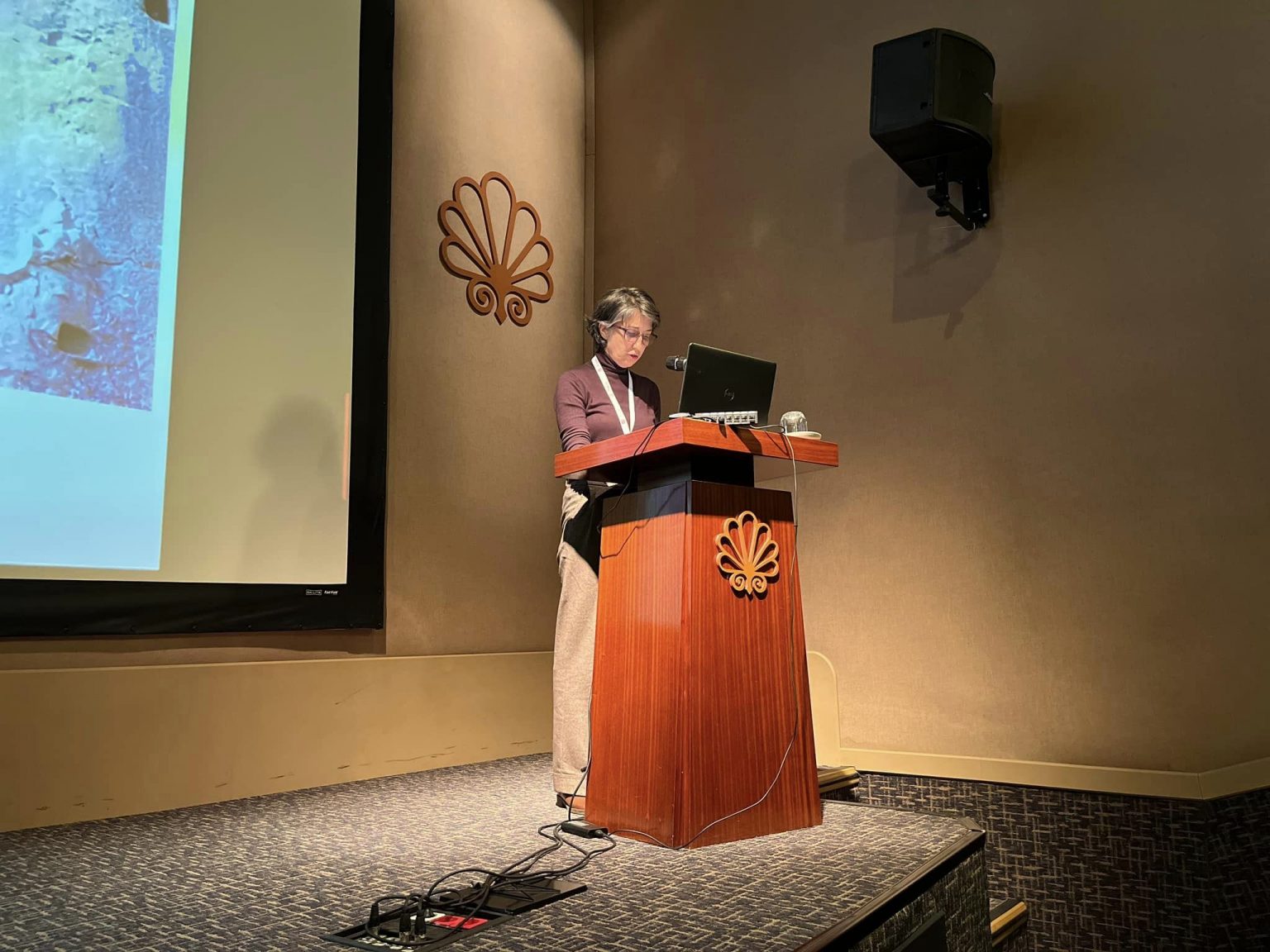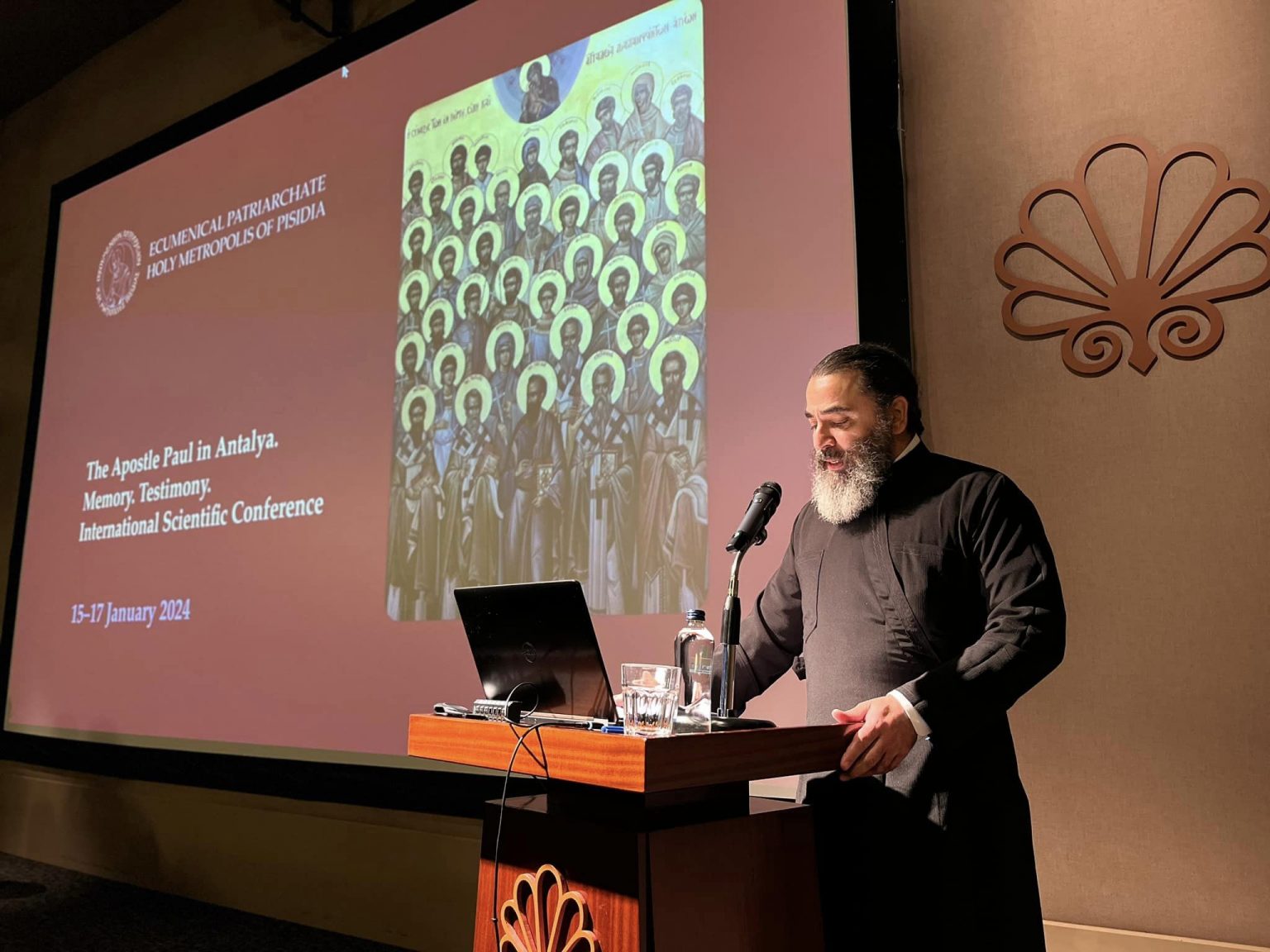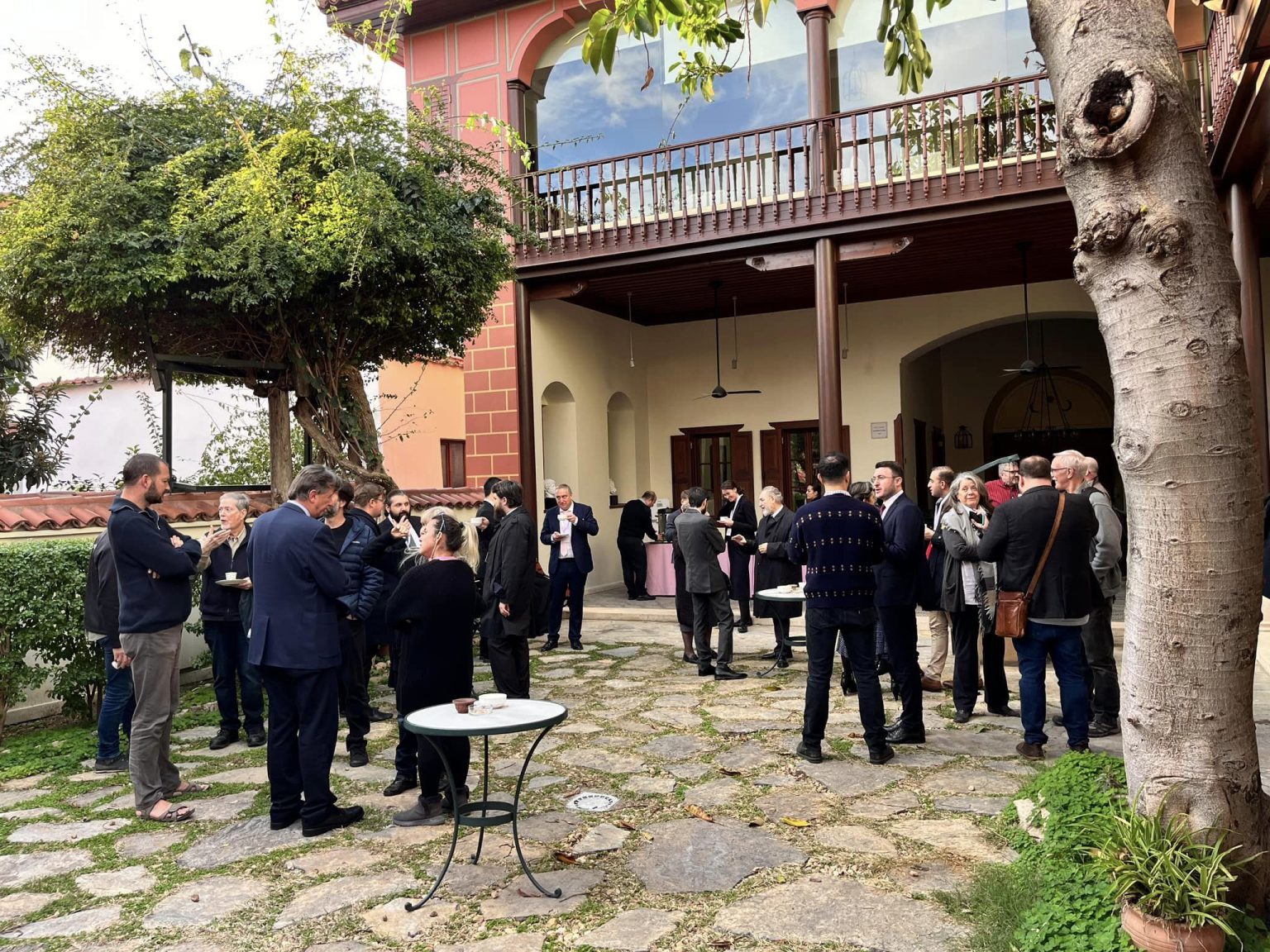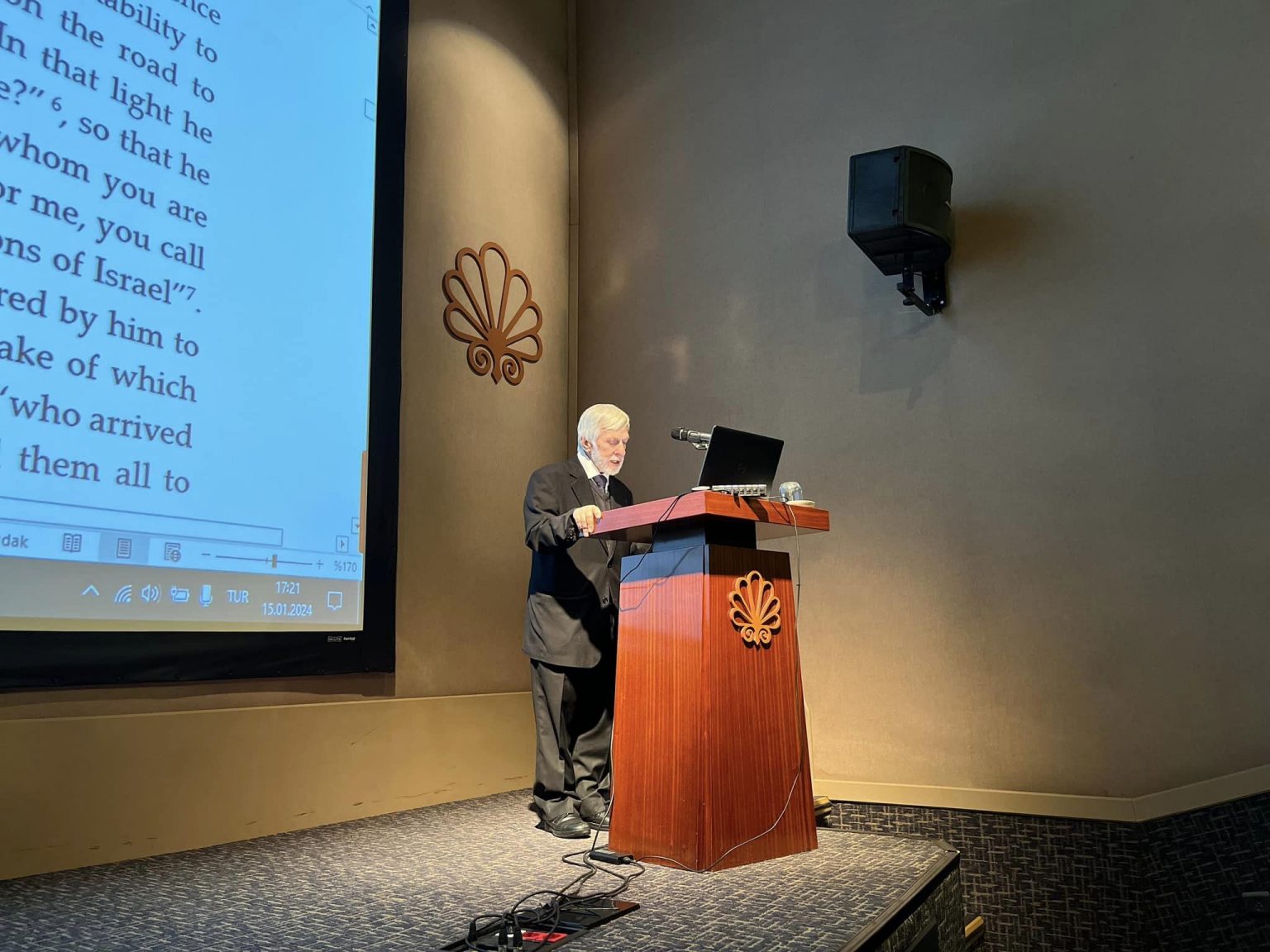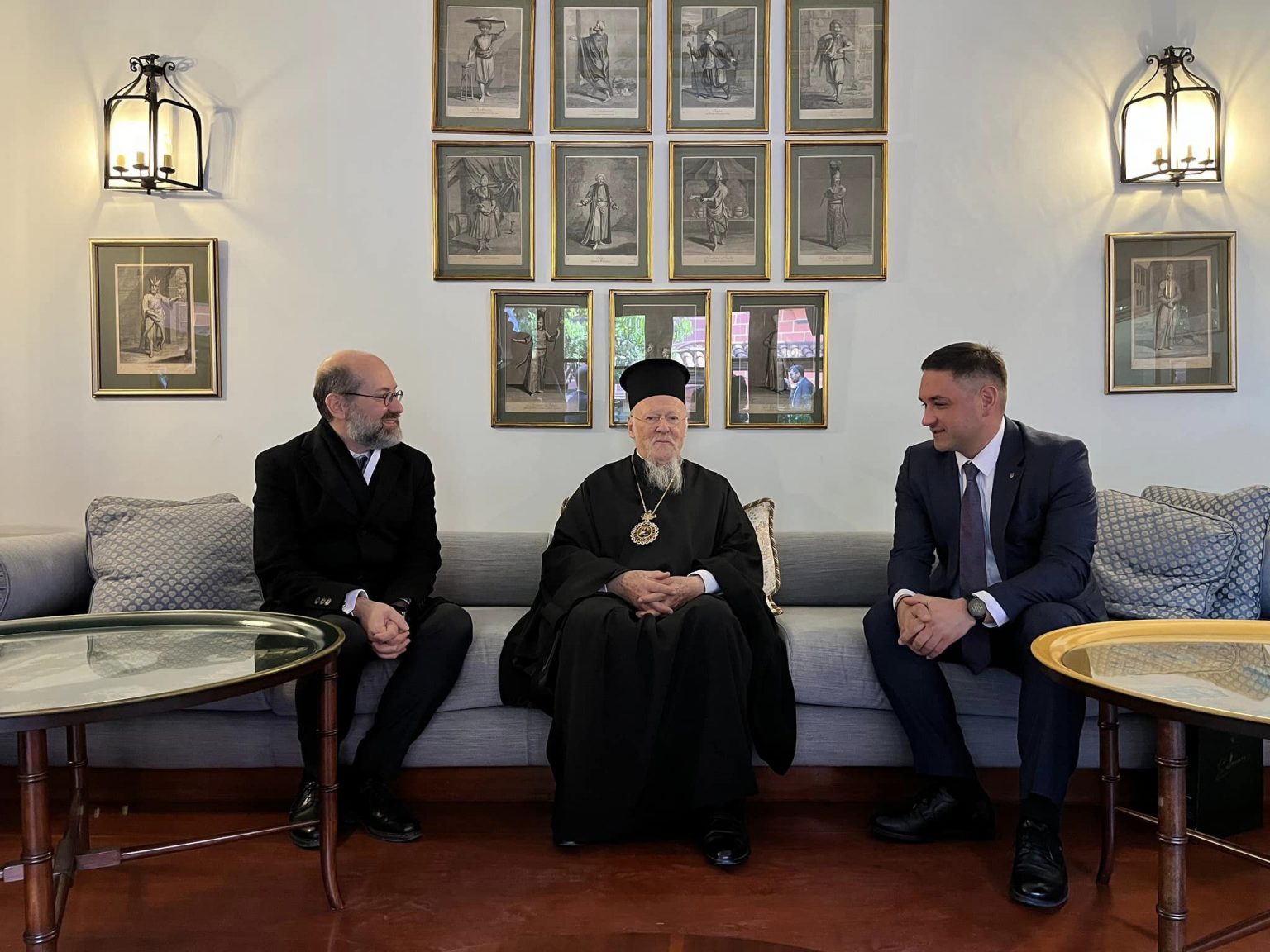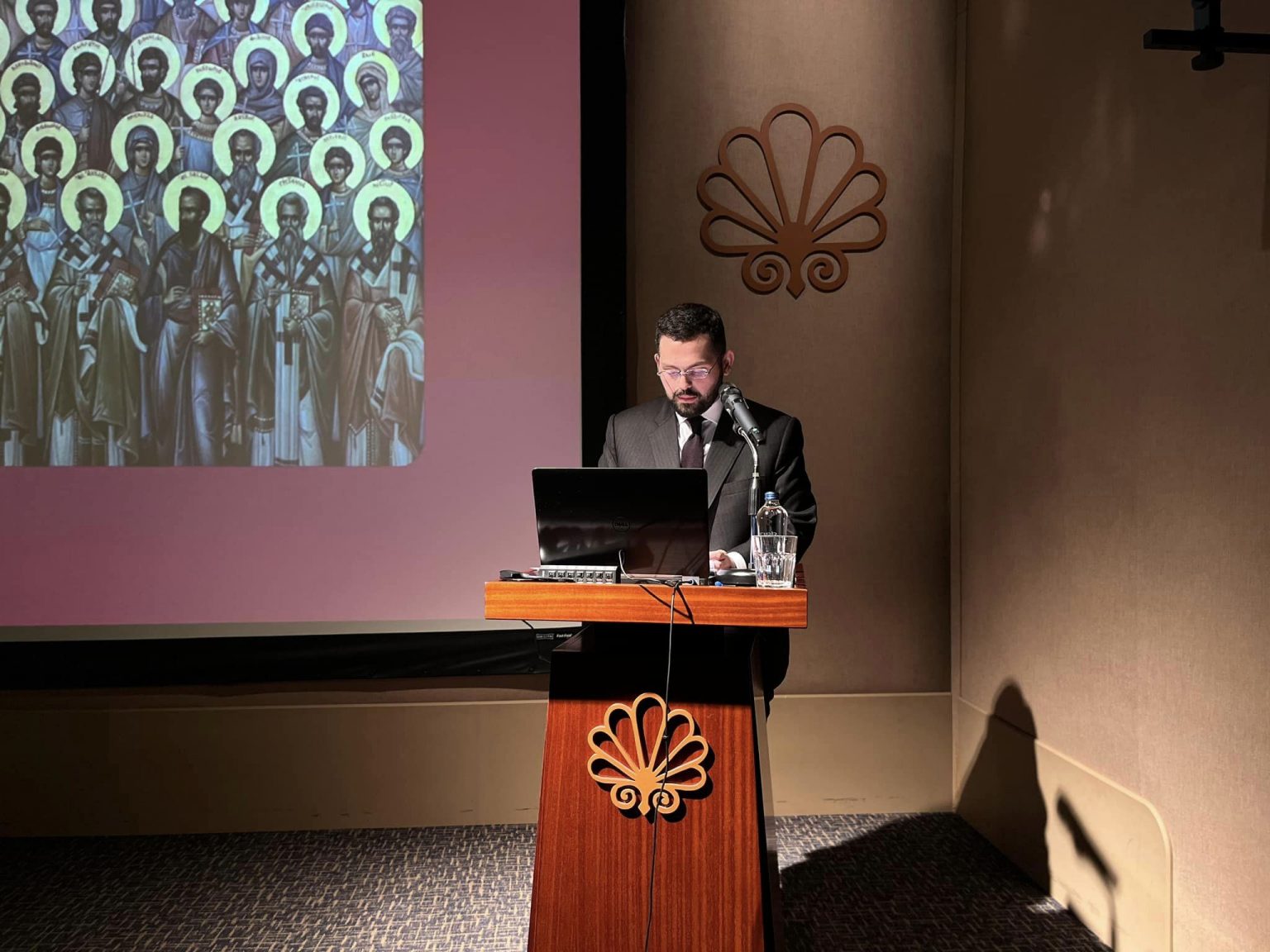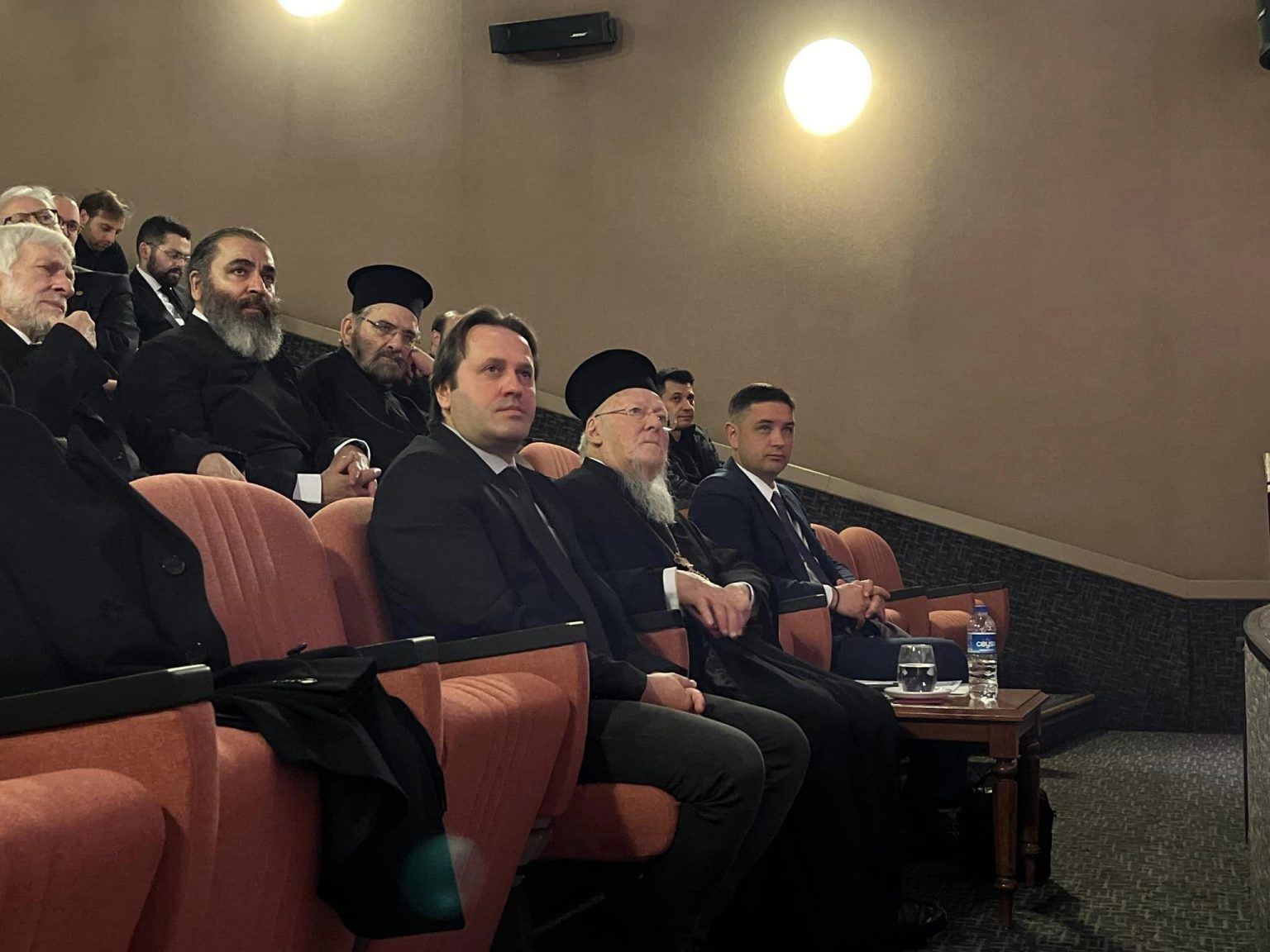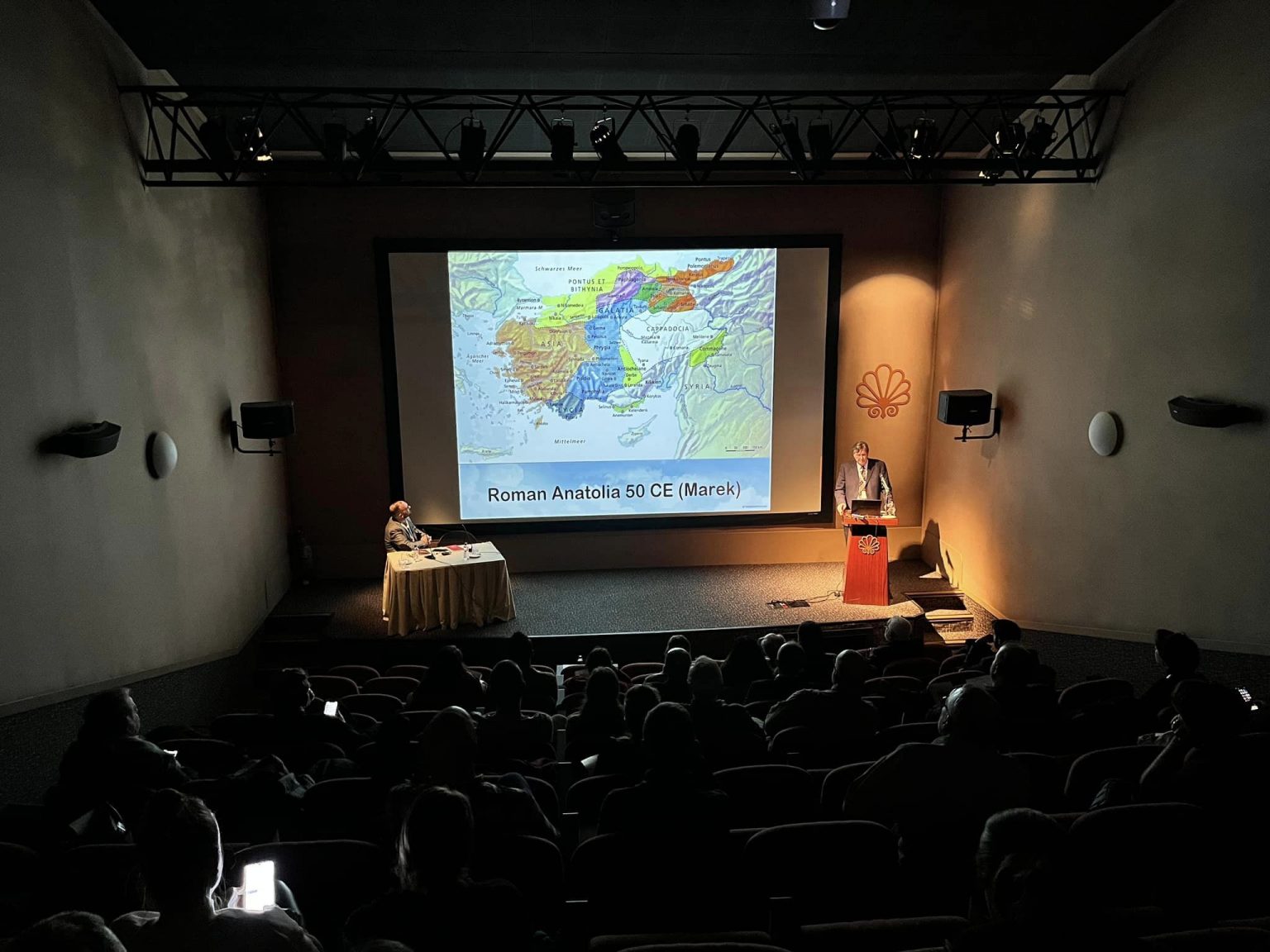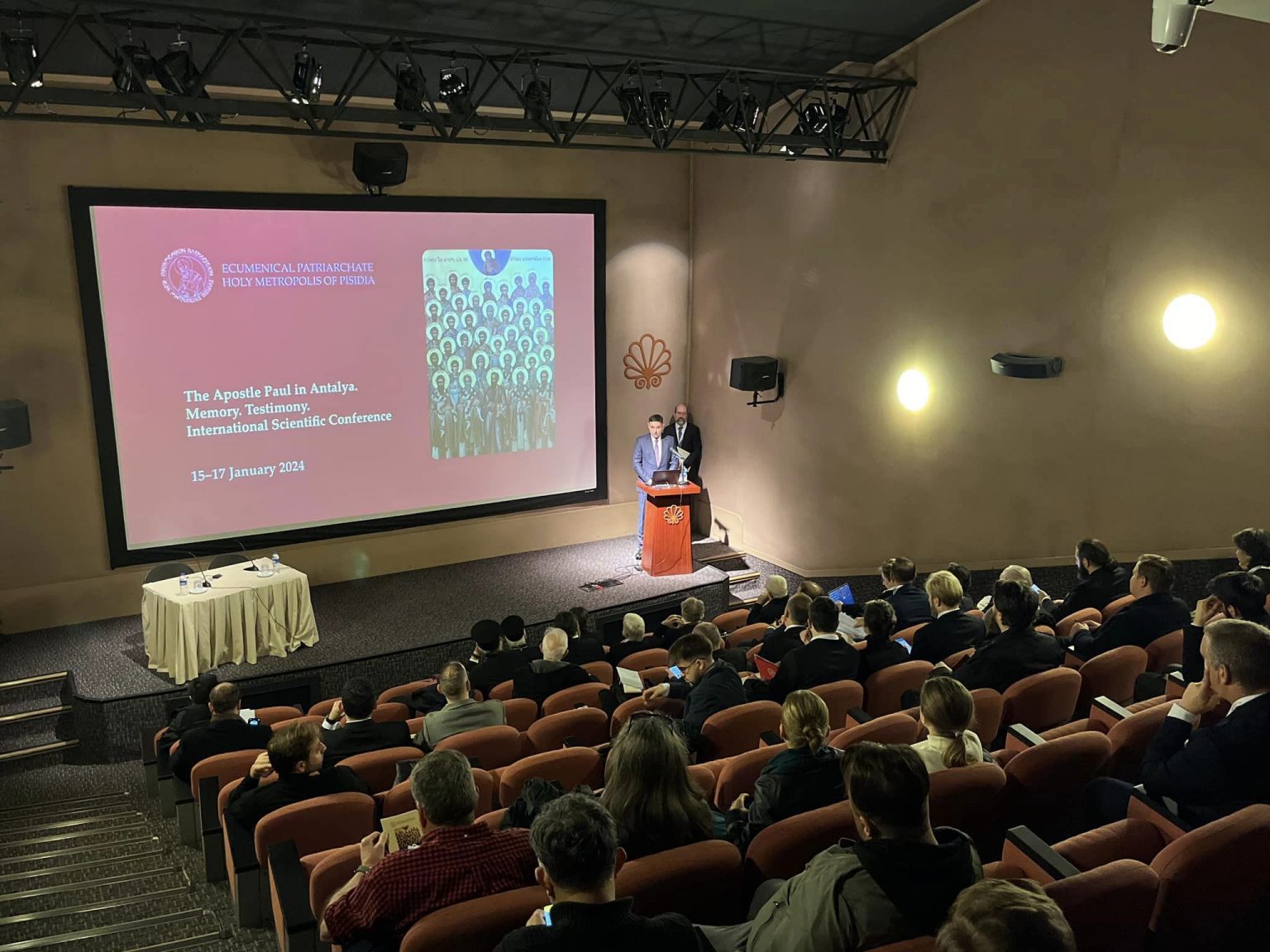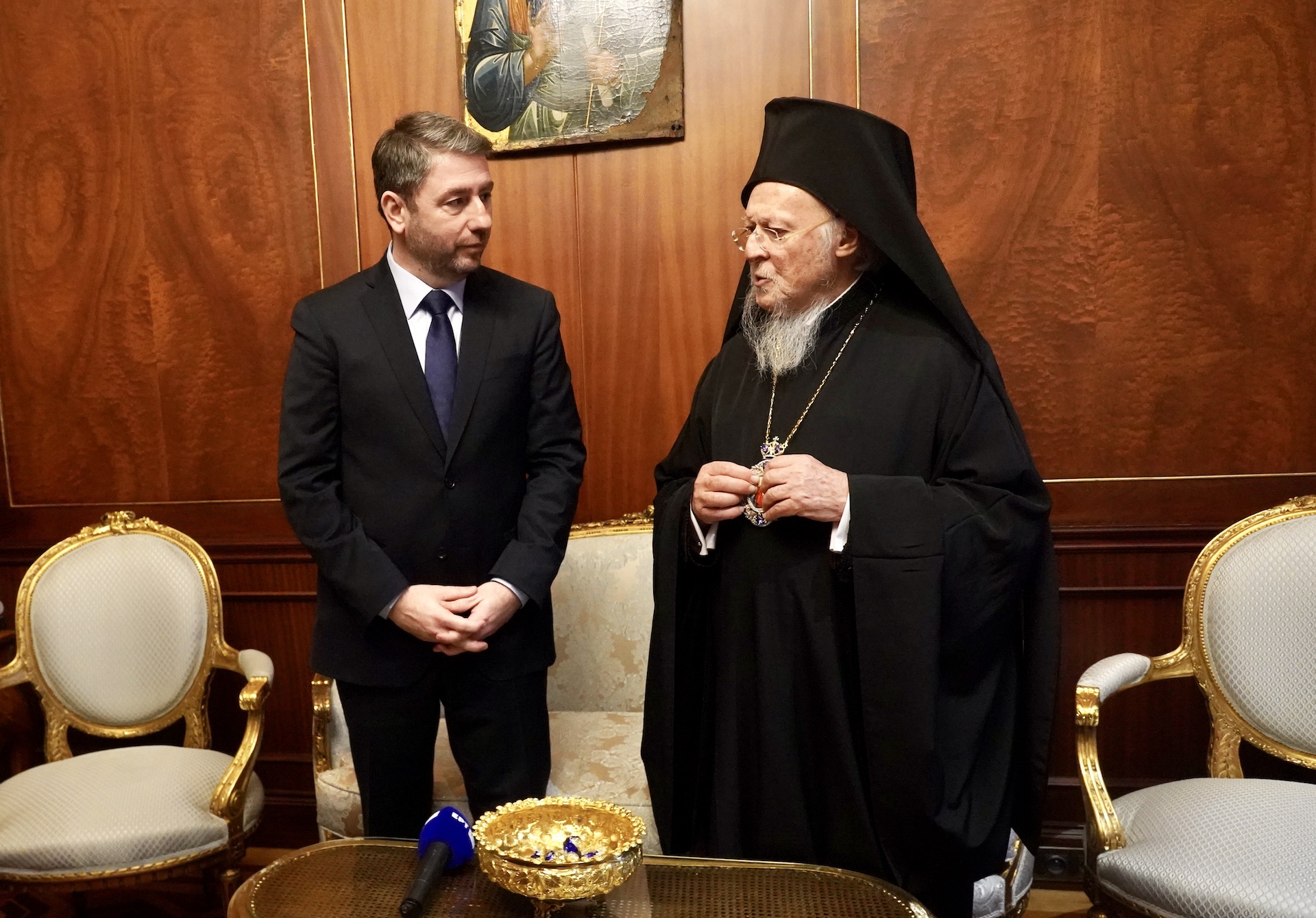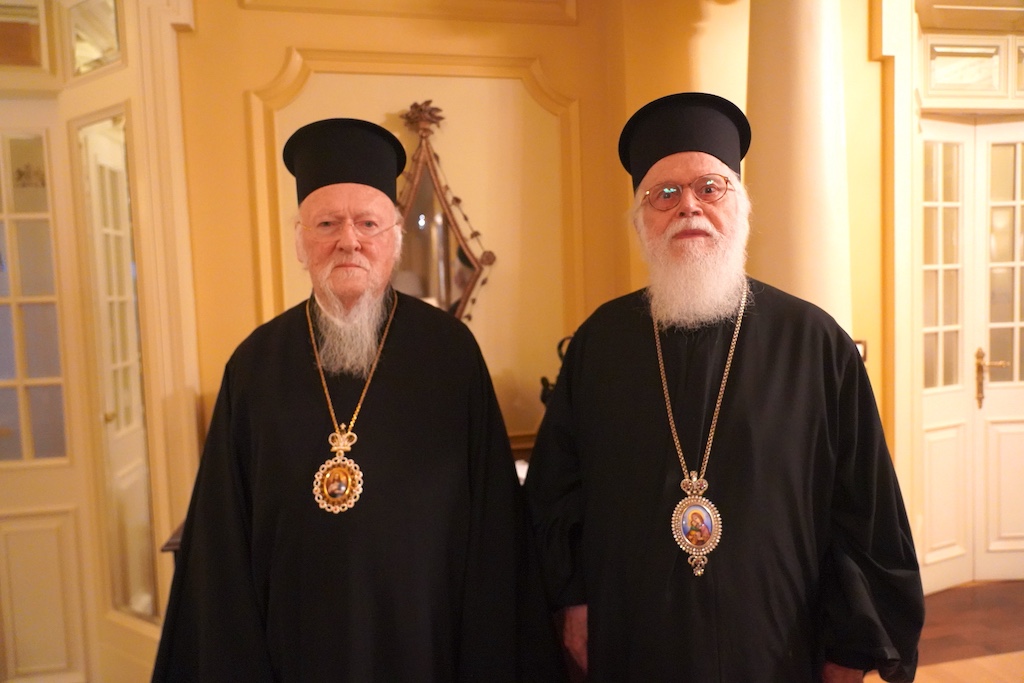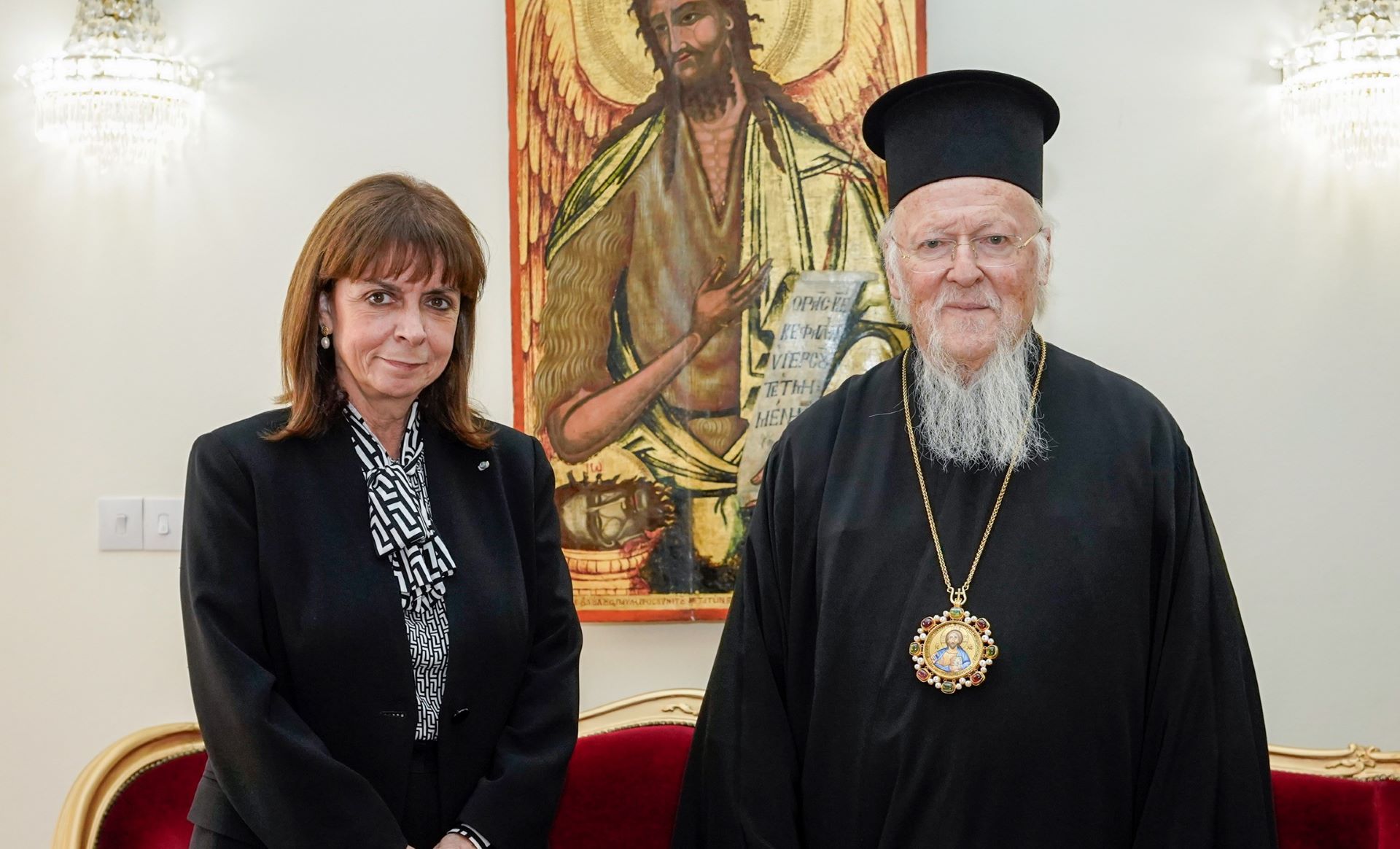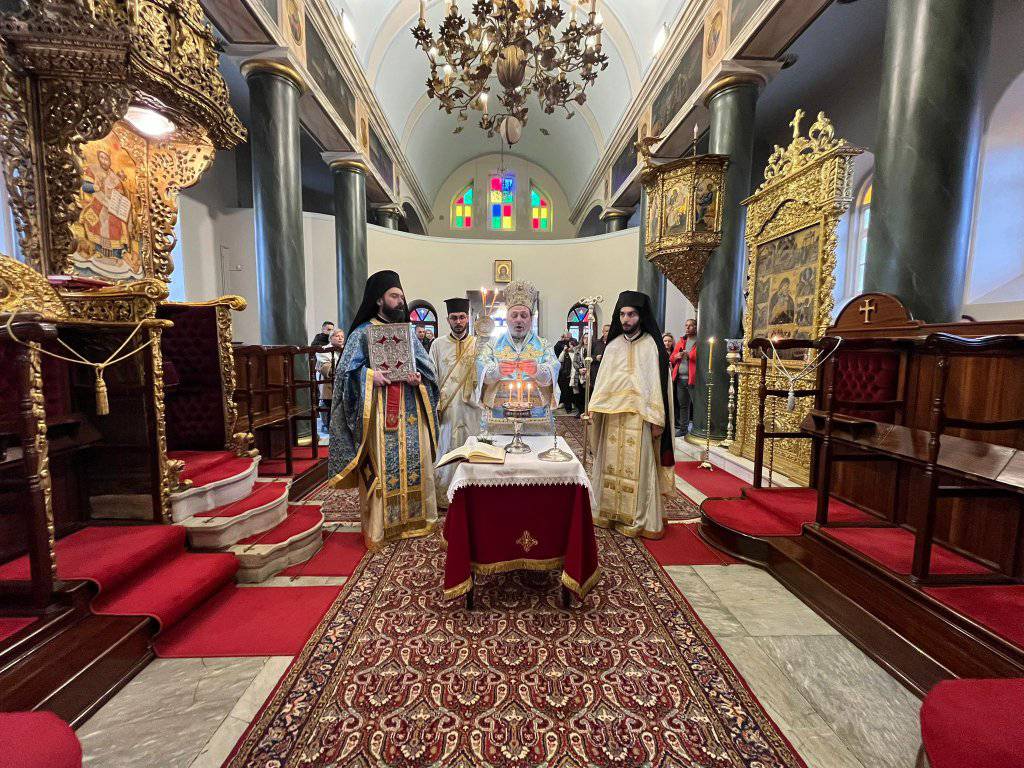Ecumenical Patriarch Bartholomew officially opened the International Scientific Conference on the Apostle Paul
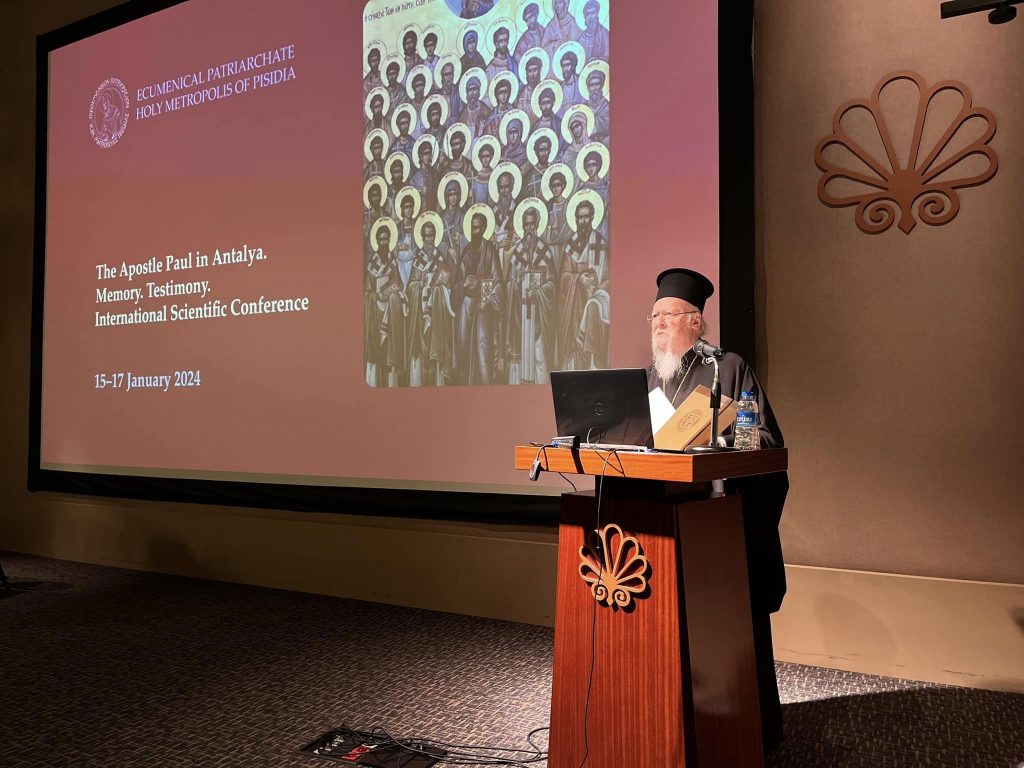

On Monday, 15 January 2024, His All-Holiness Ecumenical Patriarch Bartholomew officially opened the workings of the International Scientific Conference “The Apostle Paul in Antalya. Memory. Testimony.”, which is conducted under His auspices and organised by the Holy Metropolis of Pisidia in the city of Antalya.
In his address, His All-Holiness referred to the ecumenicity of the Gospel of Christ and the importance of the preaching of the Apostle Paul, in the context of which the Ecumenical Patriarchate undertook, in our time, a series of initiatives to promote ecumenical relations and dialogue.
“We have repeatedly emphasised that unity is not just an internal issue of the Church, precisely because it is inextricably linked to the unity of all humanity. The Church does not exist for itself, but for all humanity and, even more broadly, for the entire Creation,” the Patriarch pointed out and added: “However, at this critical moment in history, ecumenicalism is not a luxury or an advantage. It is imperative and necessary for us as Christians, since the survival of the world depends on an expanded interpretation and extensive application of the Gospel. The ecumenical mandate is necessary for its very existence and durability. We are called to be ecumenical because otherwise we cannot breathe, because otherwise we cannot exist!”
Elsewhere in his speech, His All-Holiness pointed out that in our world, religion is being exploited, manipulated and instrumentalised for various reasons, including nationalism, fanaticism and fundamentalism. “We see this before our eyes in Ukraine, where Orthodox Christianity is used unethically and unfairly against other Orthodox Christians with the blessing of the Moscow Patriarchate. We see the same violation and infamy in the Middle East and North Africa, where hostilities and war are waged in the name of religion at the expense of civilian life and human needs.”
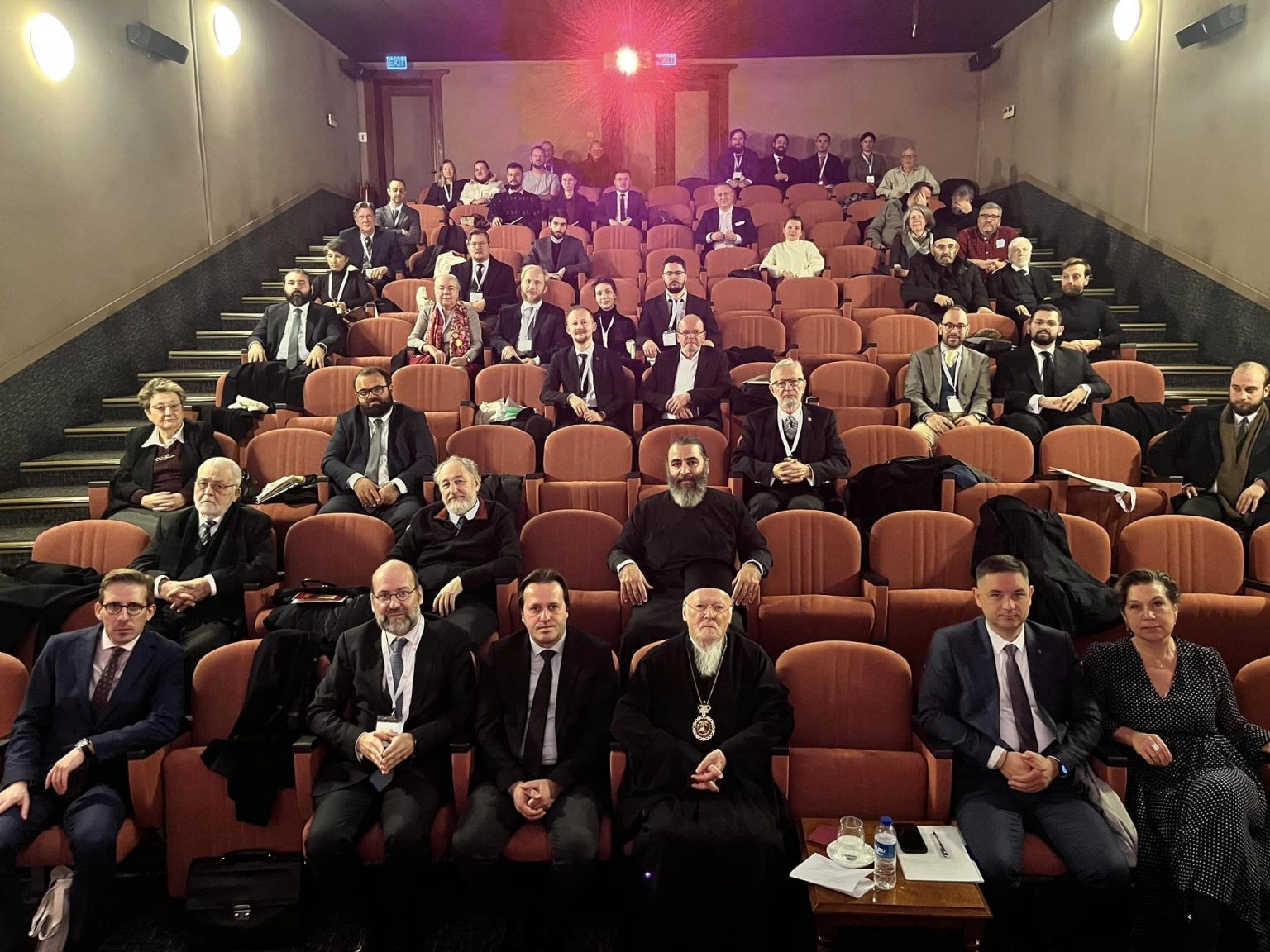

Hierarchs, clergy, University professors from many Universities and theologians from various countries participate in the Conference.
His All-Holiness arrived with his entourage in Antalya on Sunday afternoon, where he was received at the airport by the local Hierarch and Shepherd, His Eminence Metropolitan Job of Pisidia, surrounded by his clergy and lay coworkers. Afterwards, the Ecumenical Patriarch venerated at the historic Holy Church of Saint Alypios of Kionitos.
The following is the speech of His All-Holiness to the participants of the International Scientific Conference:
ST. PAUL AND THE ECUMENICITY OF THE GOSPEL
Keynote Address by His All-Holiness
Ecumenical Patriarch Bartholomew
Antalya, January 15, 2024
Venerable hierarchs and authorities,
Distinguished organizers and participants,
Beloved guests and friends,
Permit me to open with a passage from Acts, chapter 14:
Then they passed through Pisidia and came to Pamphylia. When they had spoken the word in Perga, they went down to Attalia. From there they sailed to Antioch, where they had been commended to the grace of God for the work which they had fulfilled. And when they arrived, they gathered the church together and declared all that God had done with them, and how he had opened a door of faith to the nations (Acts 14.24–28).
Like the Apostles and like St. Paul, we too have today “gathered the church together and declared . . . how God has opened a door of faith to the nations.” Even as we assemble, we recall our visit here to celebrate the Year of St. Paul. Indeed, in our Encyclical on the Feast of the Nativity (Christmas 2007), we proclaimed 2008 as a year formally dedicated to the memory and ministry of St. Paul.
Thus, following the Synaxis of the Heads of all the Orthodox Churches—which convened at the Phanar (on October 10–12, 2008) and paved the way for the realization of the Holy and Great Council (in June, 2015)—an academic symposium and spiritual pilgrimage traveled from October 11–16, 2008, through cities of Türkiye and Greece where St. Paul preached during his missionary journeys. That itinerate conference opened in Istanbul and proceeded through the historical cities of Smyrna, Ephesus, Perge, and Antalya (in Asia Minor), as well as Lindos and Kaloi Limenes (in Greece), from where St. Paul departed for his trial and martyrdom in Rome.
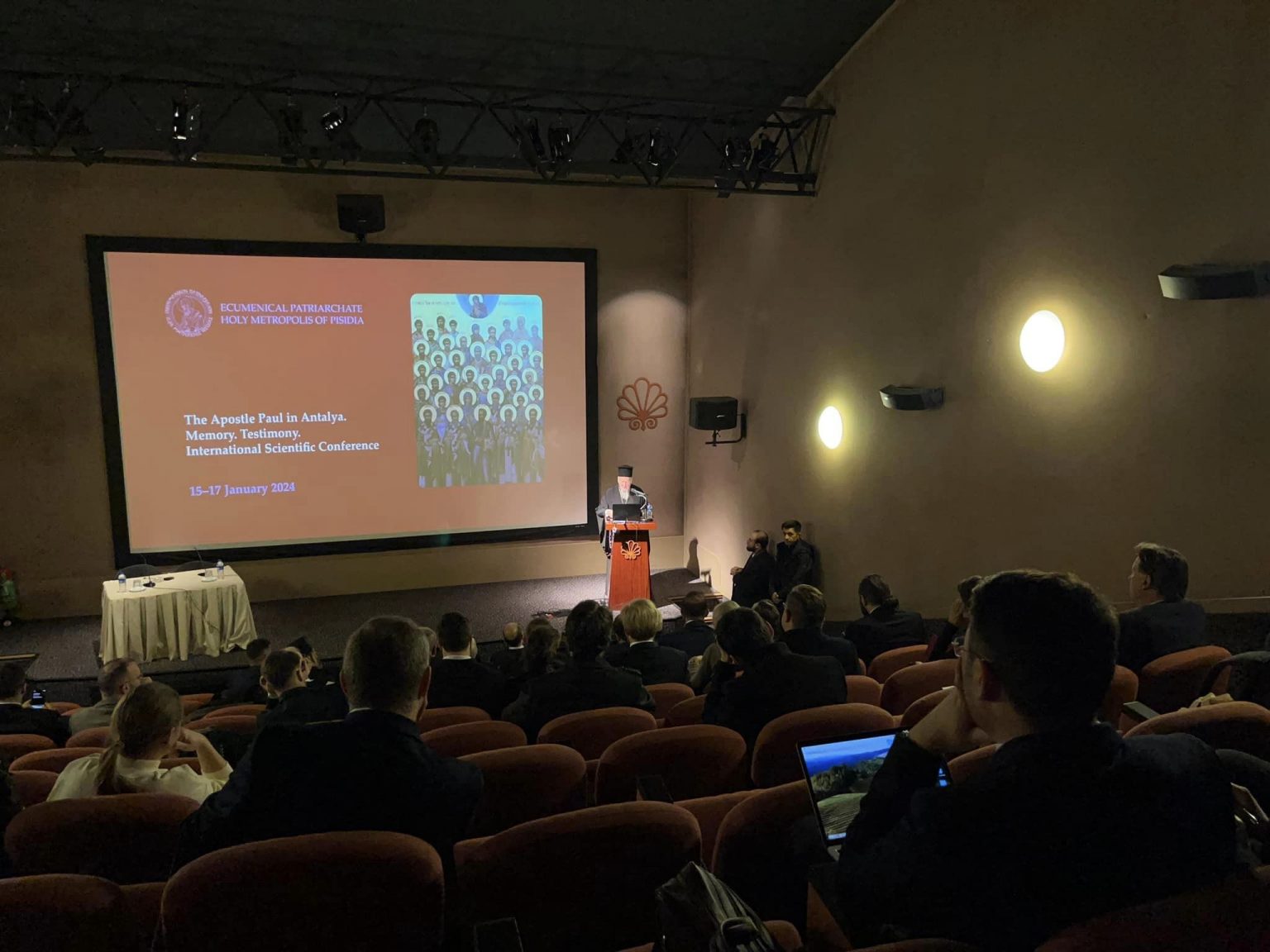

On that occasion, we were accompanied by the Patriarch of Alexandria, the Archbishop of Cyprus, the Archbishop of Athens, the Archbishop of Albania, and the Archbishop of Prague, together with eminent representatives from every Autocephalous and Autonomous Church, including the Patriarchates of Antioch, Jerusalem, Moscow, Serbia, Romania, Bulgaria, and Georgia, as well as the Churches of Poland, Finland, and Estonia. The Roman Catholic Church was represented throughout by personal delegates of Pope Benedict XVI.
Today, we find ourselves once again in Antalya, this time commemorating and celebrating the ecumenicity of the Christian Gospel promulgated by St. Paul to the universe beyond all race and religion, beyond any origin and background, and beyond status and gender alike. There is, of course, no separation or discrimination between the Gospel of salvation and the Gospel to the nations. It is one and the same good news of holiness and wholeness, healing and reconciliation, as well as unity and community intended by Trinitarian God at the moment of creation with the old covenant and incarnated by the Divine Word at the moment of recreation with the new covenant.
Thus, the divine work of creation is fully revealed and properly understood in the context of the event of salvation, through which God visits his creation through his Son. St. Paul revealed the cosmic dimensions of the universality of salvation. He wrestled to discover the language and terminology, with which to convince his audience across the Roman Empire that “salvation is in no one else, for there is no other name under heaven given among men by which we must be saved” (Acts 4.12).
It is for this reason that St. Paul preaches Jesus Christ as God’s Son, in whom, through whom, and for whom everything is created, exists, and subsists. As the firstborn of all creation in “the first Adam” and the firstborn from the dead in “the last Adam” (1 Cor.15.45), Jesus Christ is “pre-eminent” in everything, “for in him all the fullness of God was pleased to dwell, and through him all things are reconciled to himself” (Col 1:.18).
The kerygma of St. Paul expresses and explains the depth and breadth of the dogma of salvation through the cross and resurrection. Nothing could more aptly respond to the needs and challenges of our contemporary world than the ecumenical vision of this Pauline message about embracing and including every human being, to the least of our brothers and sisters (Matt.25.40), as well as every material thing, to the last particle of dust. Moreover, nothing could more accurately reflect the hope and aspiration of the Ecumenical Patriarchate over the last century than its conviction about and commitment to ecumenical relations and dialogue.
In the past, the Church of Constantinople sought to advance a “league” or “council” of communions for the sake of a joint witness of the Body of Christ in a fractured and divided world. It also fought to assemble a “great council” of Orthodox Churches with the objective of dispelling the illusion of a federation of national churches and instead establishing a sense of “one, holy, catholic, and apostolic church,” as we recite in the Nicaean-Constantinopolitan symbol of faith at every Divine Liturgy. We have repeatedly underlined that unity is not merely an internal matter of the Church, precisely because unity is inextricably linked with the unity of all humanity. The Church does not exist for itself but for all humankind and, still more broadly, for the whole of creation.
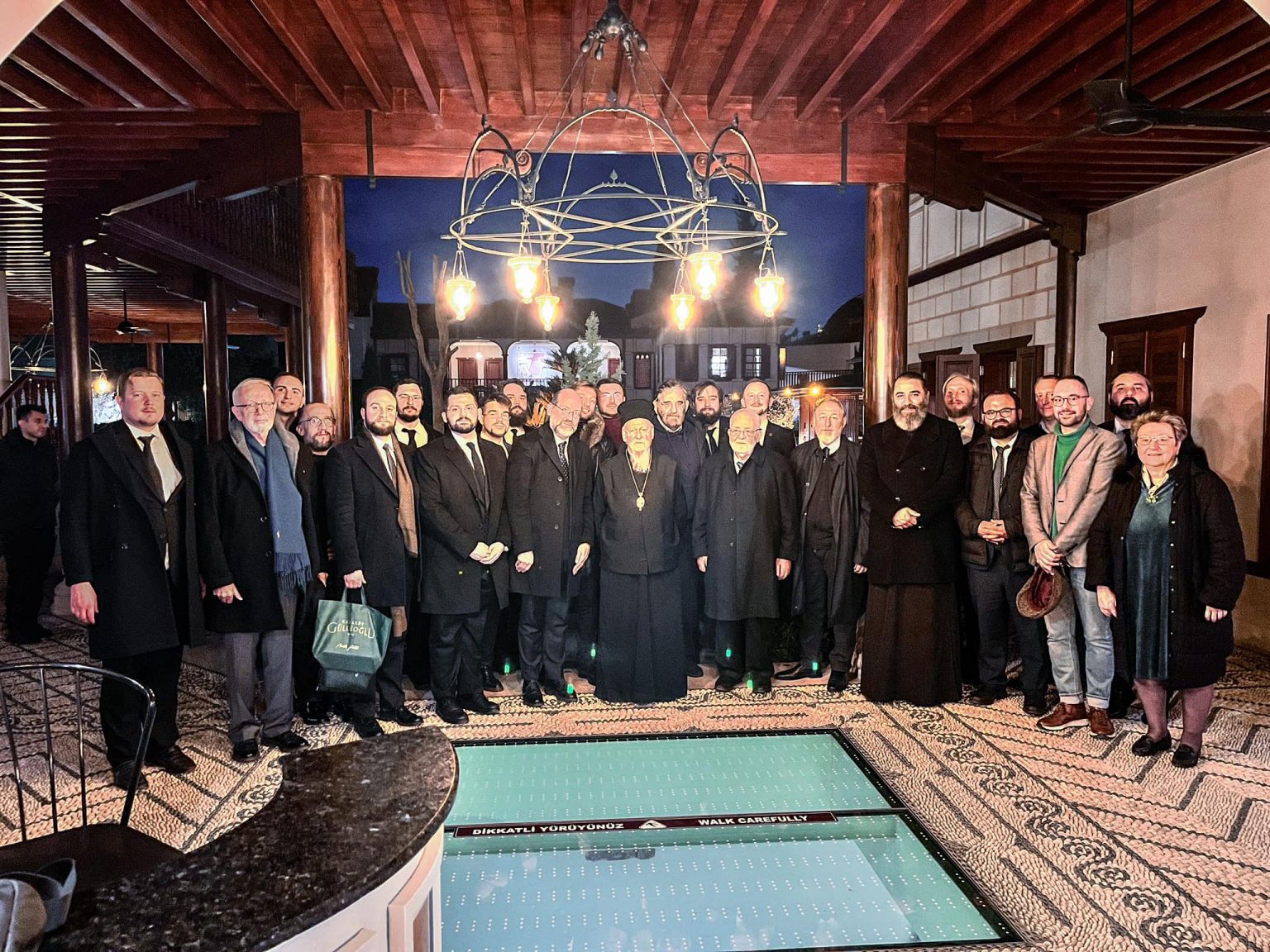

However, at this critical moment in history, ecumenicity is not a luxury or advantage; it is imperative and indispensable for us as Christians inasmuch as world’s survival depends on an expansive interpretation and extensive application of the Gospel. The ecumenical mandate is essential for the very existence and endurance. We are called to be ecumenical because we cannot otherwise breathe, because we cannot otherwise be!
This means that we cannot claim to be disciples of the crucified and risen Lord until and unless our concern and compassion reach out beyond ourselves and our own interests to everyone made in God’s image and everything fashioned by God’s love. The Gospel can never be exceptionally identified with or exclusively restricted to a single culture or political system. It cannot choose sides on the basis of prejudice or partisanship. It must always break down barriers and instead build up bridges, constantly moving outside stereotypical zones of comfort and complacency.
Therefore, when we pursue inter-Christian relations today—engaging with Roman Catholic, Anglican, Lutheran, and all Protestant believers—we are naturally promoting sacramental unity in accordance with the prayer of our Lord, who desired “that [his disciples] may all be one” (John 17.21), but we are also recognizing that Christians must stand in solidarity with those who are “persecuted for righteousness’ sake . . . and falsely for [Christ’s] sake” (Matt. 5.10–11).
By the same token, when we undertake inter-religious conversations today—engaging with our Jewish, Muslim, and other brothers and sisters—we are clearly fulfilling the commandment to “make disciples of all nations, teaching them to observe what [we] were commanded” (Matt. 28.19–20), but we are also acknowledging that only love—not peace or conflict or violence—can bring peace.
In fact, we could and should take the ecumenicity of the Gospel of Christ and message of Paul one step further. Because in our world, religion is being exploited, manipulated, and instrumentalized for all the wrong reasons, including nationalism, fanaticism, and fundamentalism. We witness this before our eyes in Ukraine, where Orthodox Christianity is unethically and unjustly harnessed against other Orthodox Christians with the blessing of the Moscow Patriarchate. We observe the same violation and vilification in the Middle East and Northern Africa, where hostility and warfare are waged in the name of religion at the expense of civilian life and humanitarian need.
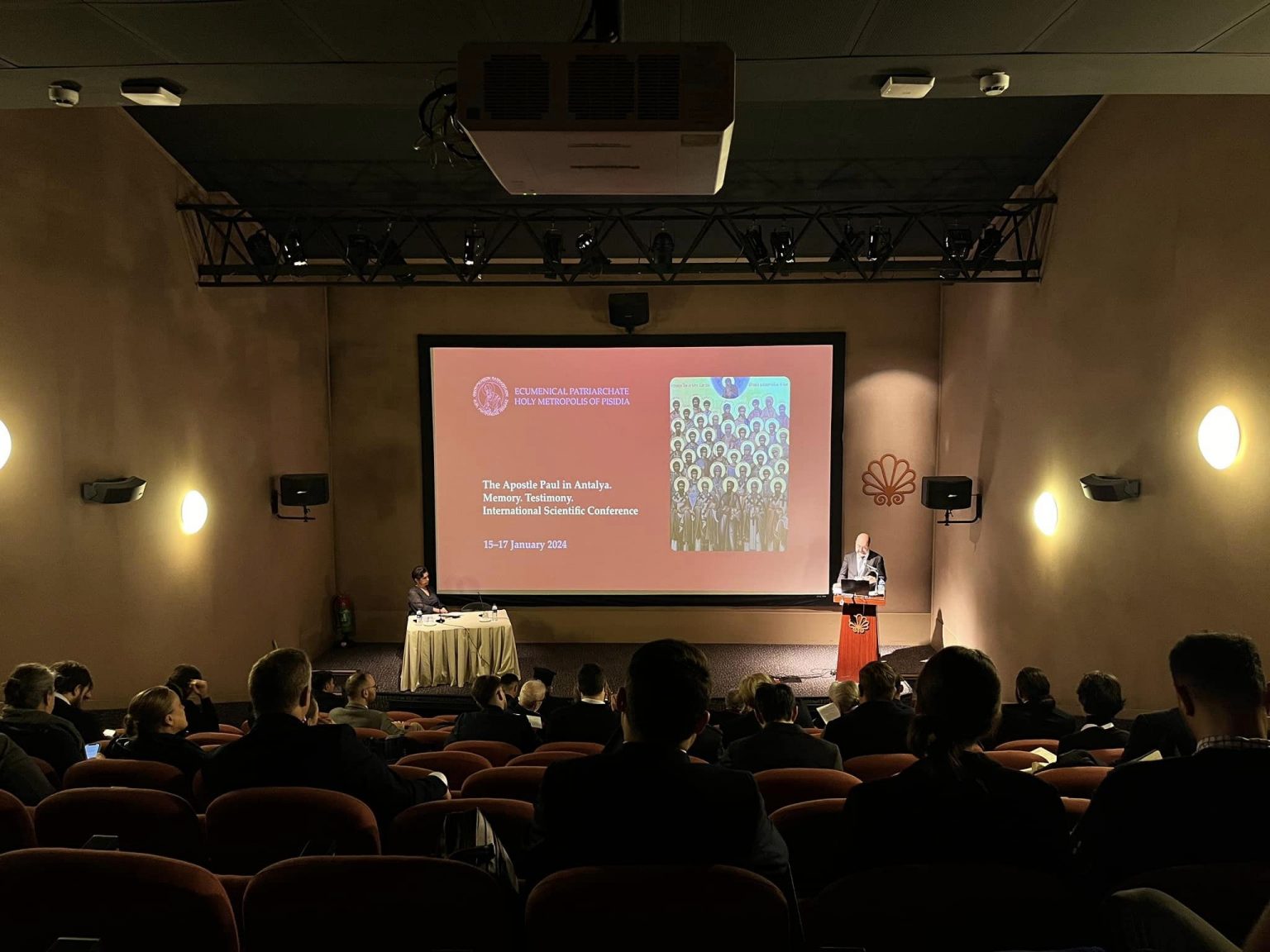

This means that we are all called to adopt a genuinely ecumenical and apostolic perspective with universal and cosmic consequences. We are all invited to imagine our role and responsibility in the world as inclusive and comprehensive, welcoming and embracing our neighbor as ourselves. And we are all called to be more susceptible and flexible in our behavior toward foreigners and strangers, refugees and immigrants, marginalized and outcast. The words of St. Paul to the Corinthians should always resonate in our mind and heart:
For though I am free from all men, I have made myself a slave to all, that I might win the more. To the Jews I became as a Jew, in order to win Jews; to those under the law I became as one under the law . . . that I might win those under the law. To those outside the law I became as one outside the law . . . that I might win those outside the law. To the weak I became weak, that I might win the weak. I have become all things to all men, that I might by all means save some. I do it all for the sake of the gospel, that I may share in its blessings (1 Cor. 9.19–23).
Dear friends,
The ecumenicity of Paul’s preaching is the other side of the same coin that is the ecumenicity of Christ’s Gospel. Just as the “good news” of Christ’s salvation and reconciliation reaches “the end of the earth” (Acts 1.8), the goal of our message and mission should reach out and respond to the call of the poor and the crisis of creation that yearn for restoration and transformation, as well as harmony and integrity.
Such is the context within which we should perceive the ecumenicity of the Gospel as it is comprehended and communicated by St. Paul to the nations. It is the same framework within which we certainly appreciate and apply our ecumenical accountability before members of other confessions, believers of other faiths, and all people of good will in a fractured and antagonistic world that sincerely longs for greater generosity and hospitality.
It is our prayer and hope that this conference may contribute toward such an ecumenical worldview and way of life.
